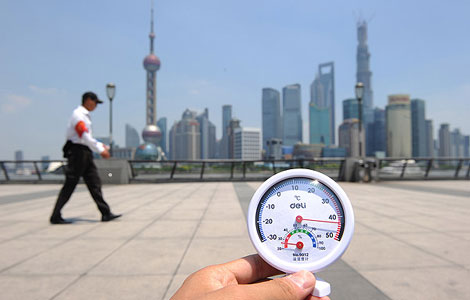E-commerce growing in China's small towns
Updated: 2013-08-07 16:45
(Xinhua)
|
||||||||
BEIJING -- E-commerce is becoming increasingly popular in China's small towns, with local residents spending even more money than their urban peers.
A resident of Tonglu county in east China's Zhejiang province, 23-year-old Liu Hua said he spends a lot of money on Taobao, China's biggest online shopping website.
He said he and his mother spend more than 10,000 yuan ($1,632) each year on online shopping.
"I shop more online than in real stores. I mostly buy electronics and food, while my mom buys clothing and cosmetics," Liu said.
"Tonglu is small and high-tech electronics aren't available here. In addition, such goods are usually more expensive in stores than online," he said.
According to a report released by Taobao in late July, people living in counties and townships spent an average of 5,628 yuan per person online, almost 1,000 yuan more than their urban counterparts.
Major global brands like Estee Lauder, Nike and Vans have sold well in counties and townships, the report said.
Small-town shoppers spent 765 yuan on average per person on Estee Lauder cosmetics, slightly more than 652 yuan by the first- and second-tier city dwellers, according to the report.
Another report released in March by the McKinsey Global Institute showed that the online shopping habits of residents of small towns and counties are similar to those of urban residents, even though incomes in counties and townships tend to be smaller.
According to the report, for every 100 yuan spent online, 57 yuan is spent by people in third- and fourth-tier cities, greater than the national average of 39 yuan.
However, the presence of counterfeit goods and a poorly-developed logistics industry have risen as challenges to the development of e-commerce.
"I'm always concerned about fake products and the risk of my products being damaged while being delivered," Liu said.
Xu Zheng, a resident of Harbin, the capital of northeast China's Heilongjiang province, had complaints about the speed at which his online purchases are delivered.
"I have to wait for three to four days or even longer for online goods," Xu said.
E-commerce giant Alibaba Group formed a consortium in May to build a nationwide intelligent logistics network that can ensure rapid delivery of online purchases.
Wang Xiaozhang, a professor at Zhejiang University, said the enlarging role of online shopping is related to confined shopping choices in small towns and the convenience brought by technology.
"Both sellers and buyers should develop credit and the government should create relevant regulations if and when poor delivery efficiency and damaged products become severe problems," he said.
Most Viewed
Editor's Picks

|

|

|

|

|

|
Today's Top News
China vows to severely punish newborn traffickers
Sri Lanka suspends NZ milk powder imports
PV firms face risks despite EU deal
Small firms should also think global
China issues record fines to dairy firms
US, China trade deficit narrows
NBA courts Sina Corp
EC denies delay in telecoms probes
US Weekly

|

|












